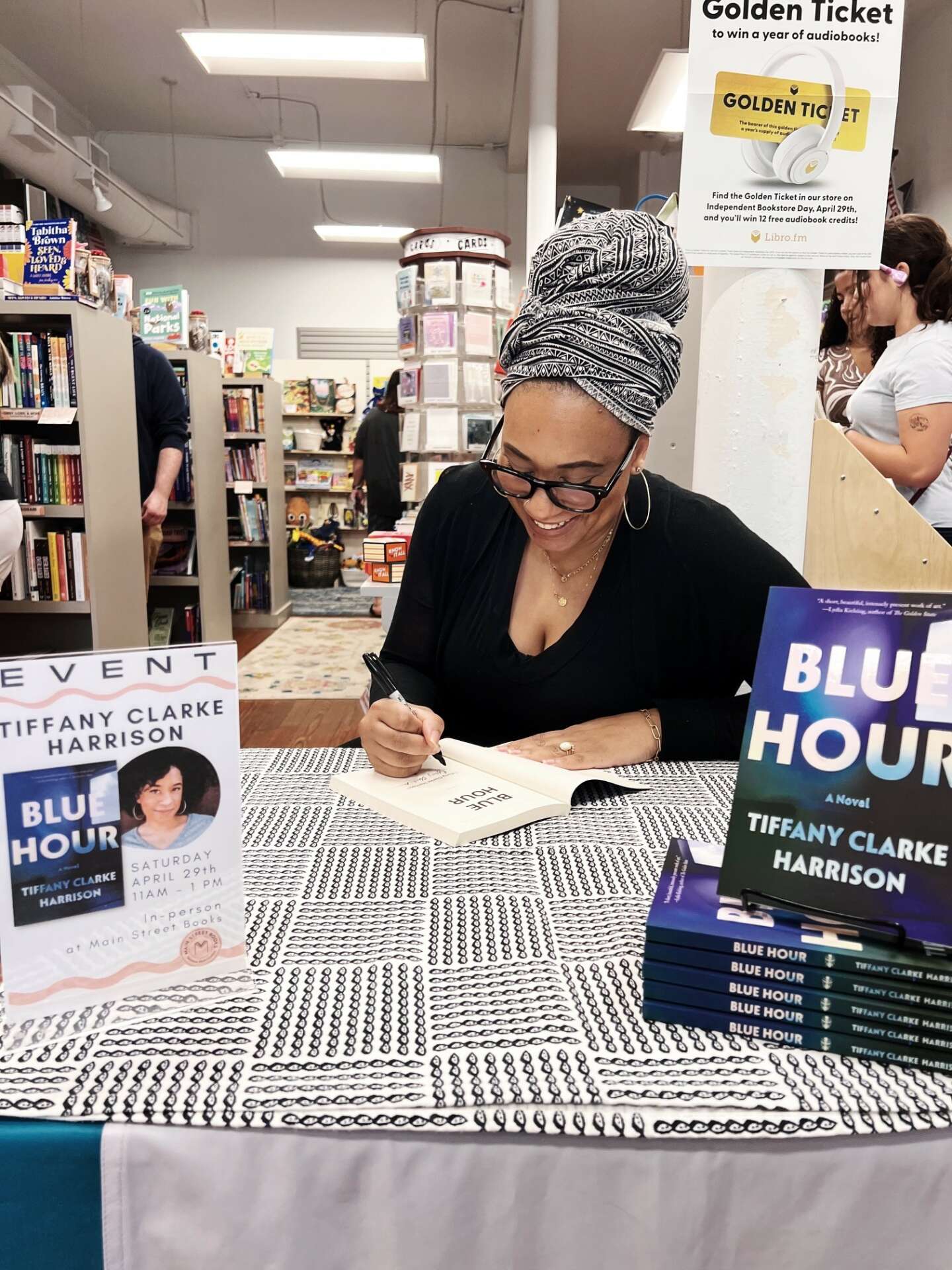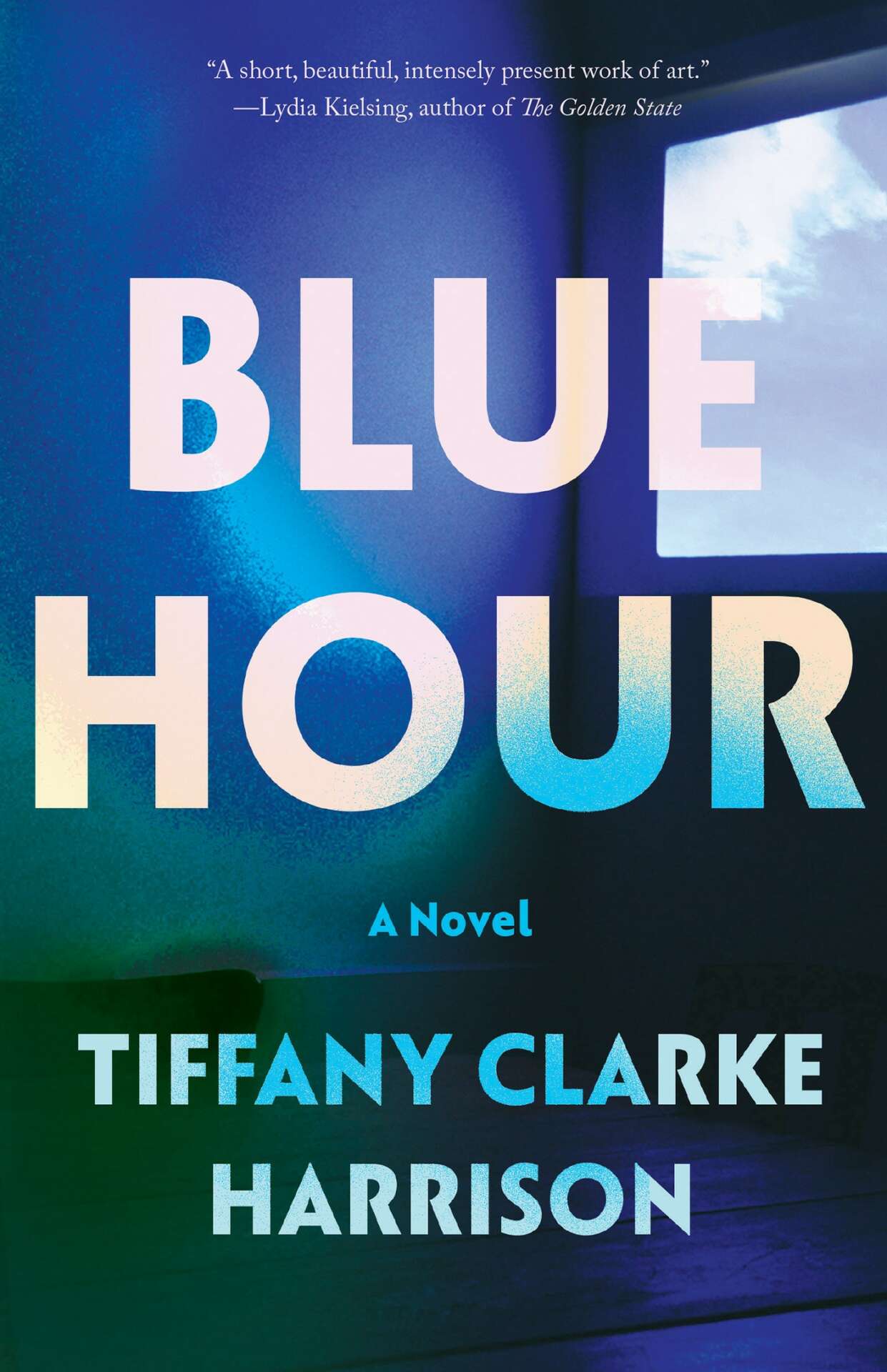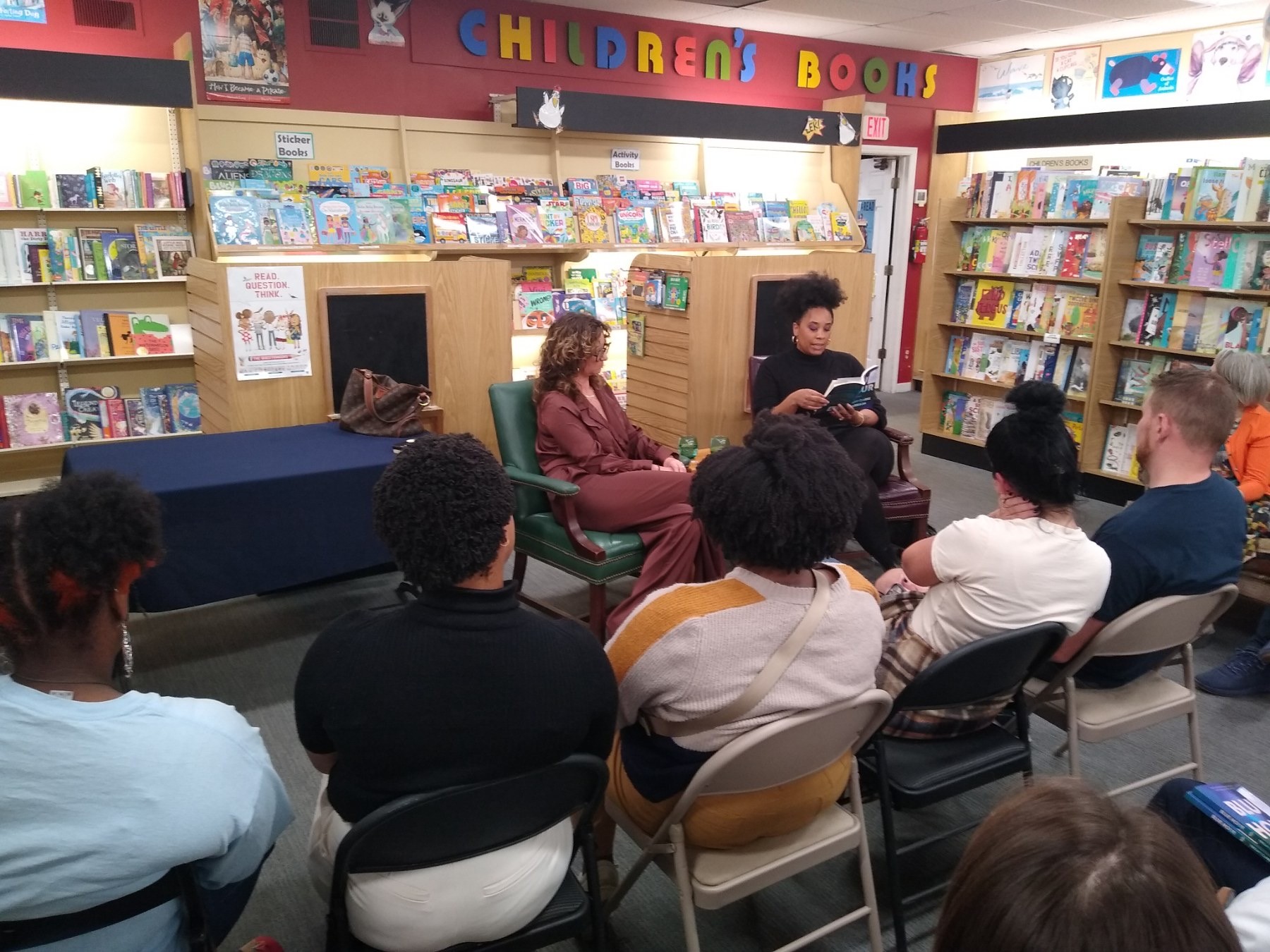Alright – so today we’ve got the honor of introducing you to Tiffany Clarke Harrison. We think you’ll enjoy our conversation, we’ve shared it below.
Tiffany, thanks for taking the time to share your stories with us today Are you happier as a creative? Do you sometimes think about what it would be like to just have a regular job? Can you talk to us about how you think through these emotions?
“Happy” is an understatement. I’m 44 and spent many years doing what I thought I “should” be doing despite feeling the pull toward the arts. Very little about a “regular job” appeal to me in my twenties but I didn’t know any different. Working a 9-5 was simply what one did after graduating college, and I fell in line. When I was diagnosed with Multiple Sclerosis (MS) at age 37, all that changed. Over the next couple years I left my role as a marketing director, and decided to pour myself fully into finishing my novel (Blue Hour). I enrolled in an MFA program and not only finished that novel, but submitted it to an interested agent many months before graduating. She signed me immediately. Since Blue Hour came out in April, it’s been ranked on Vulture’s best books of 2023 list and Barack Obama’s 2023 summer reading list. A therapist has said she plans to use the book with her patients. The general response to the book has been incredible. As an author, I get to spend my days writing literary fiction and helping other authors do the same. I’m living a life of literature, and that’s all I’ve ever wanted.


Great, appreciate you sharing that with us. Before we ask you to share more of your insights, can you take a moment to introduce yourself and how you got to where you are today to our readers.
In a world where most are numbing their way through life, my goal is to create a culture where emotional intensity isn’t some socially fatal flaw, but a breath of fresh air. Raw, honest authors lead the way by writing characters who express the dense, unfiltered entirety of emotion. They dare themselves and their characters to go deeper and tell the whole “emotionally unacceptable” truth. I’ve always written. I loved making up stories when I was younger, was and English major (Creative Writing concentration) in undergrad, and have an MFA (Fiction), but writing is so much more than craft. I often tell clients, “your characters couldn’t care less about craft. They want you to ‘go there’ and tell their real stories. That’s why they chose you.” When you treat characters as real humans, observe how they move their bodies, how they speak, how they respond to the world, and rely on these details and how you want a scene, a conversation, the book to feel, craft often follows. If more fine tuning needs to happen, leave that for the editing process. The writing is for exploration. A feelings-first approach is how I’ve helped clients be #1 bestsellers on Amazon and land six-figure book deals. I have a private mentorship/book coaching option for clients where we not only look at the technical aspects of the story, but also the subconscious blocks and patterns that might be getting in the way of the writing. I also periodically host groups for those who want that community as they work on their projects. One of the biggest compliments from clients is how safe they feel being vulnerable with me, in private mentorship or in a group setting. Many have even said that I gotten to the root of their problem in, say, 30 minutes when years of therapy hasn’t been able to. That always makes me laugh—but honestly, if I wasn’t doing this, I’d be a psychologist.


What’s a lesson you had to unlearn and what’s the backstory?
The biggest belief I had to unlearn is that life is supposed to look a certain way. Right before my diagnosis, I was completely burned out. Literally, my insides burned constantly. I was in spaces I felt like I needed to be in in order to “succeed” that were terrible for my mental health. After my MS diagnosis, I decided I was no longer doing things the way I thought I had to. I leaned into what I always knew about myself—I was a more intuitive person who’s gut was my best decision maker. Rigid structures and long-term plans don’t suit me. I may have a big idea, but figuring out every step of the way and when to take it simply does not work for me. However, this isn’t what we’re taught. Honoring our natural rhythms isn’t what we’re taught, and for years I thought something was wrong with me because I couldn’t seem to thrive in structured environments like everyone else. (Learning I am an INFP in Myers Briggs was revelatory and affirmed so much. We’re also only 4% of the population.) What works for me—I have my big idea and then take the next step that feels right for me. I need space and flexibility. And any time I’ve needed something more structured, I’ve noticed that people who love working that way show up to assist and I’m still able to work in a way that works best for me.
For you, what’s the most rewarding aspect of being a creative?
The most rewarding aspect of being an artist is that I get to fulfill my purpose of helping others feel again to see their greatness and live accordingly. And I get to do it through something I love: storytelling and working with writers.
Contact Info:
- Website: tiffanyclarkeharrison.com
- Instagram: instagram.com/tiffanyclarkeharrison
Image Credits
The headshot image credit- Kelley Raye


